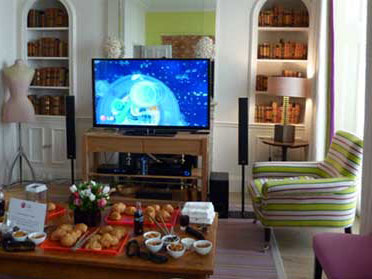Despite the emergence of new media consumption technologies such as IPTV (internet-protocol television) and mobile TV viewing, the majority of UK viewers prefer watching TV on large-screen HDTVs in the comfort of their living rooms, according to a new study that looked into the increasing influence of television viewing on the lives of British people.

Out of more than 2000 adults (age- and gender-matched to accurately reflect the UK demographic profile) who took part in a questionnaire put together by online market research firm Research Now, 73% indicated that watching TV on a handheld mobile device was no match for the big-screen HDTV viewing experience in the living room. Furthermore, over half of the respondents denied that they would change their existing TV viewing habits even in the face of new display technologies like IPTV, PCs and mobile gadgets.
Freesat, the UK subscription-free digital satellite TV platform co-owned by BBC and ITV, commissioned Research Now to conduct the study in association with TV and media psychologist Dr Brian Young who provided interim advice and final analysis. The finished report – titled “The Joy Of Sets” – lent insight into the growing influence of TV watching in the lives of Brits, thanks to the introduction of catch-up TV services (such as BBC iPlayer) and personal video recorders (PVRs), the rise of digital media and social networking websites like Facebook and Twitter, and to a certain extent the slowdown of the economy.
While watching TV used to be perceived as a solitary activity, now it is providing topics of conversations to be discussed with other people, fuelled in part by the near-instant communication made possible by social networking tools like Twitter and Facebook. Over a third of respondents (37% to be precise) in the Joy of Sets study admitted spending up to five hours per week talking about their favourite TV programmes with friends.
The tough economic climate also had an effect on TV viewing behaviour in the UK, causing 28% of the respondents to watch up to 50% more television due to staying in.